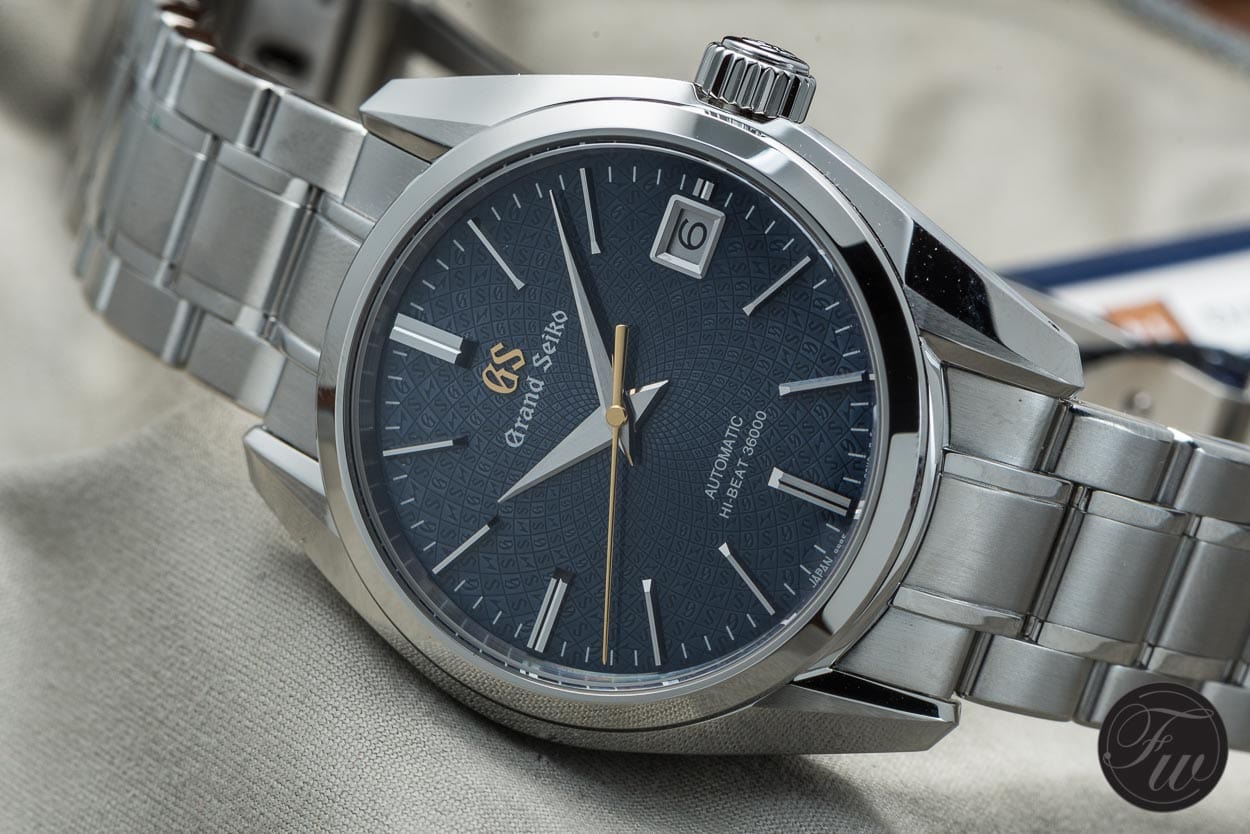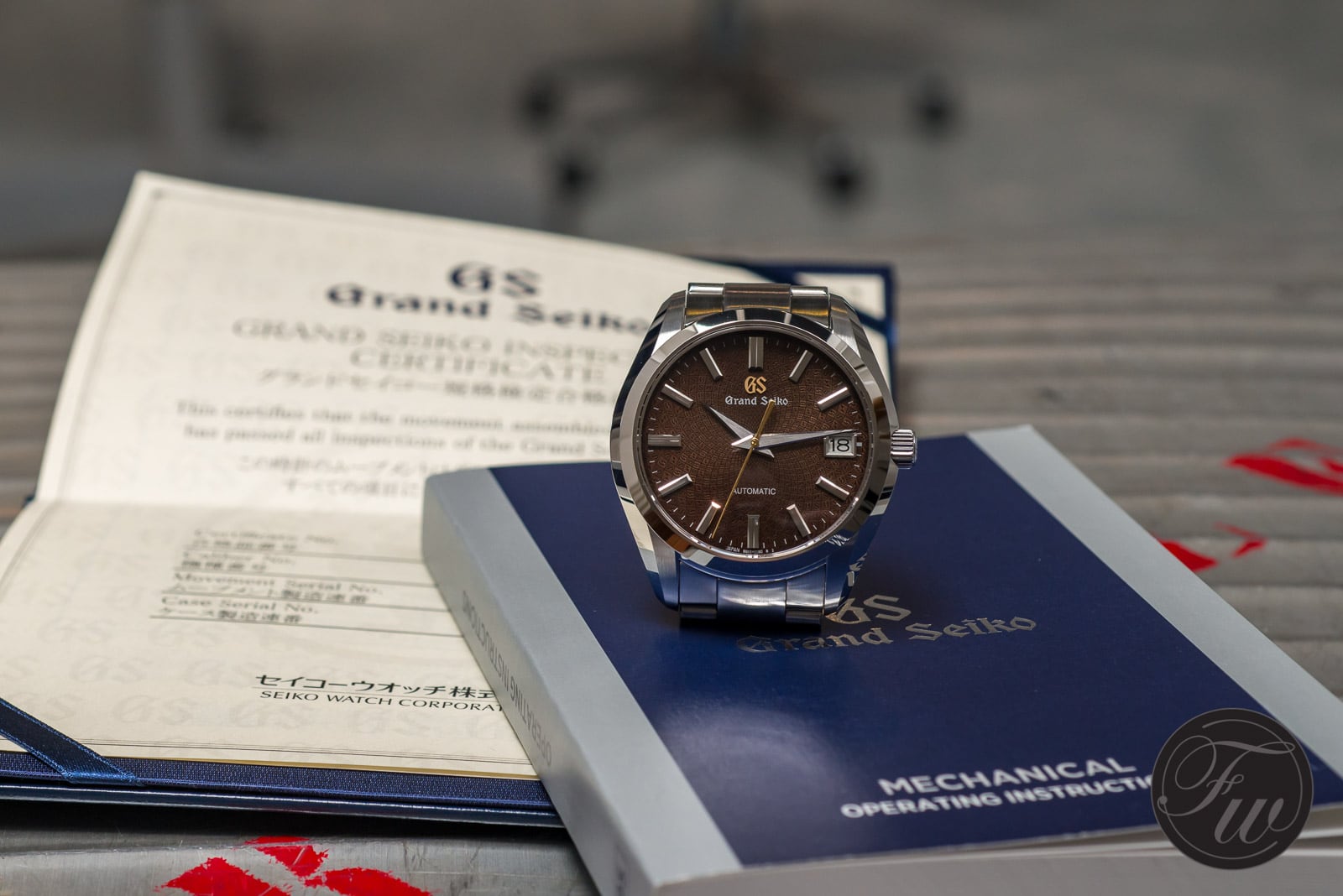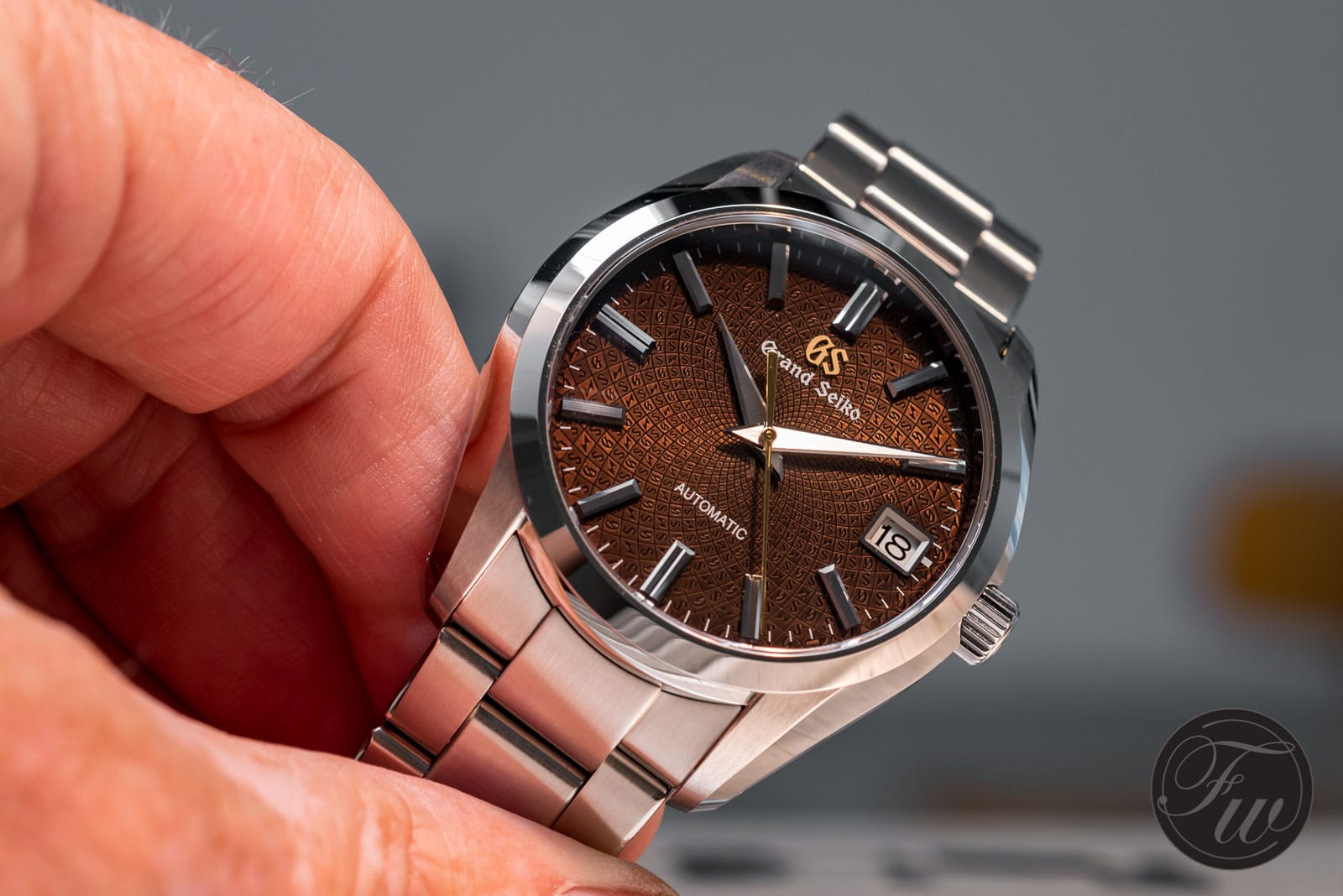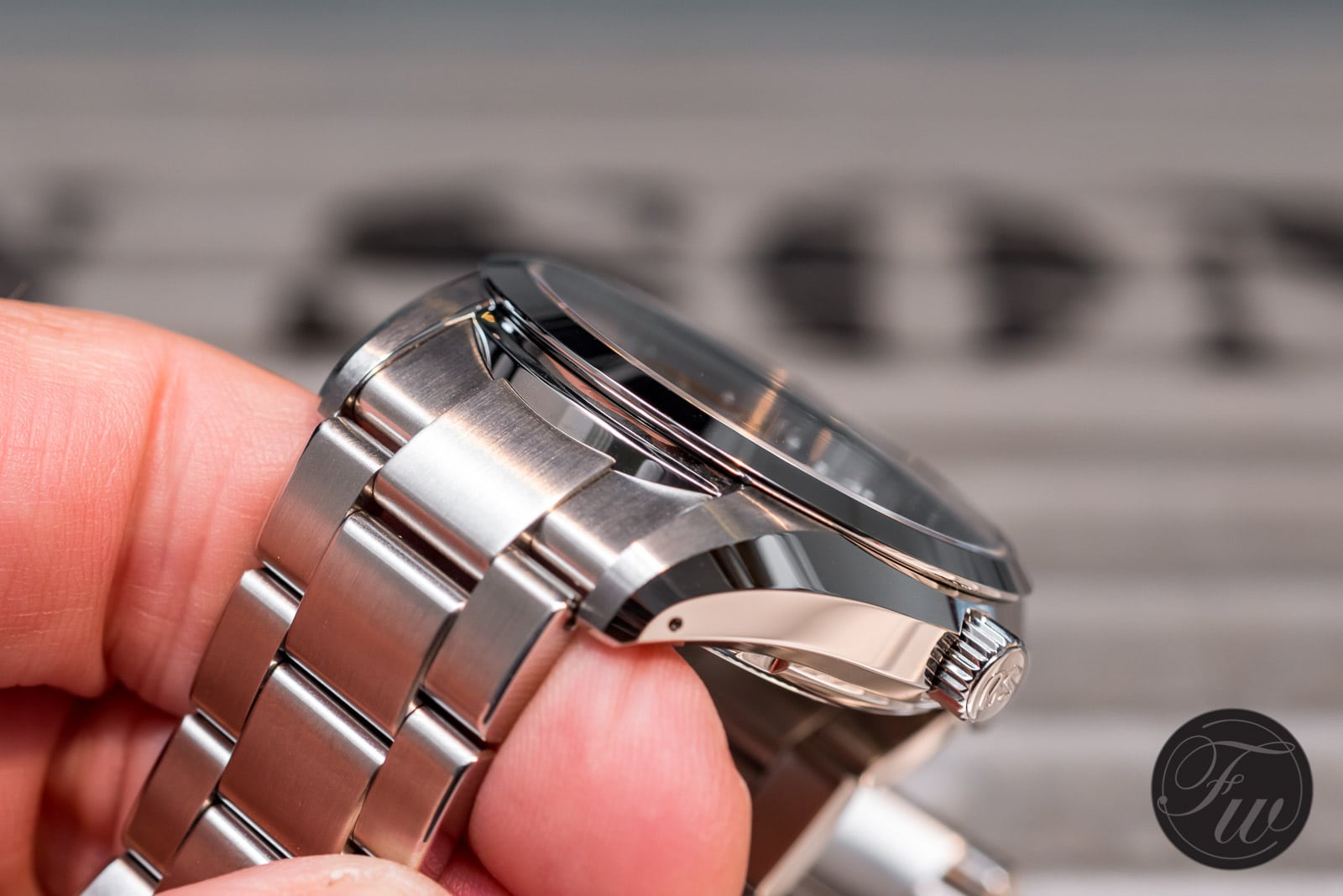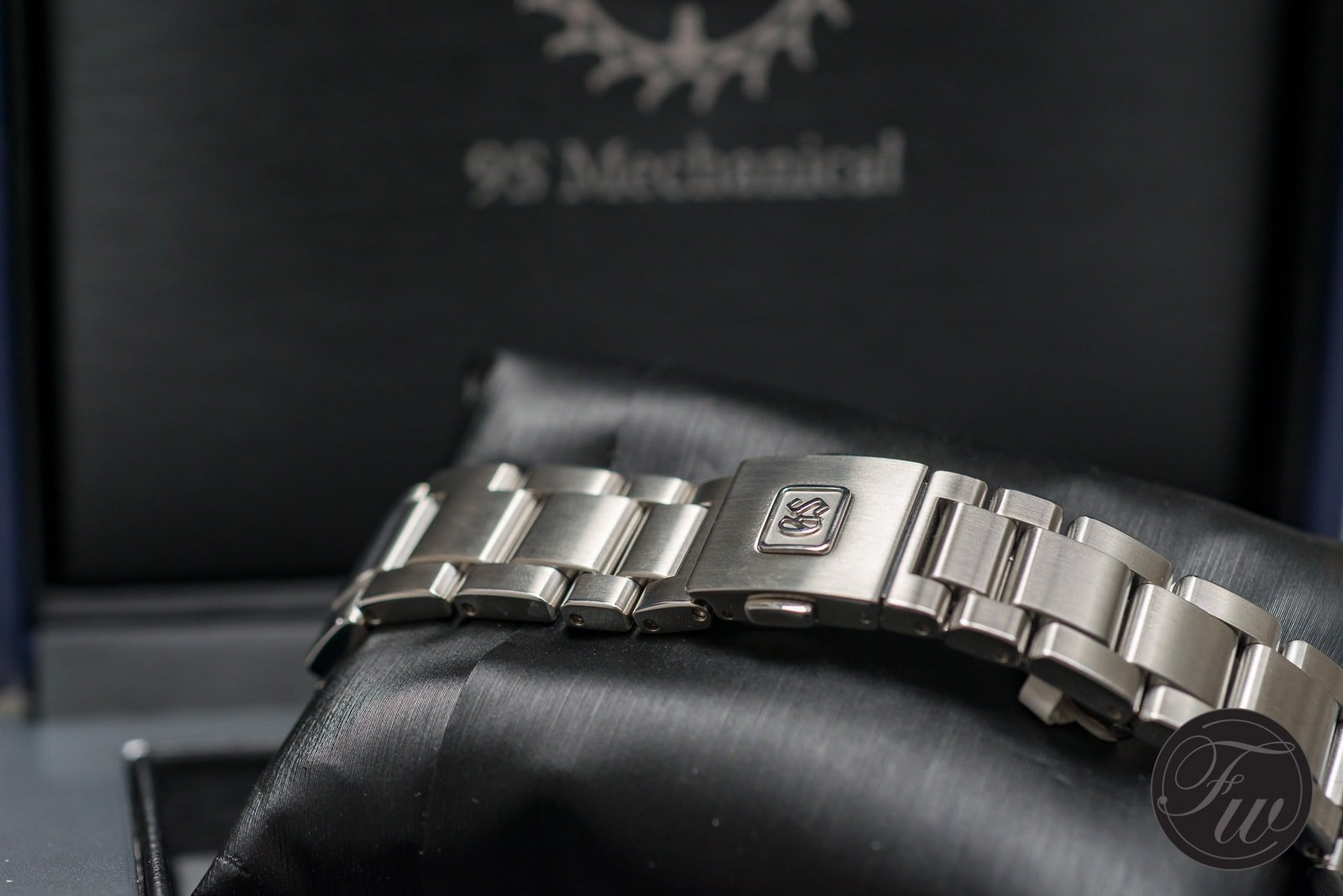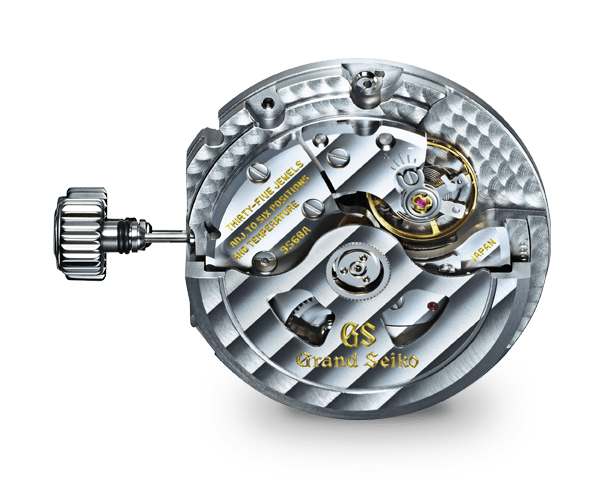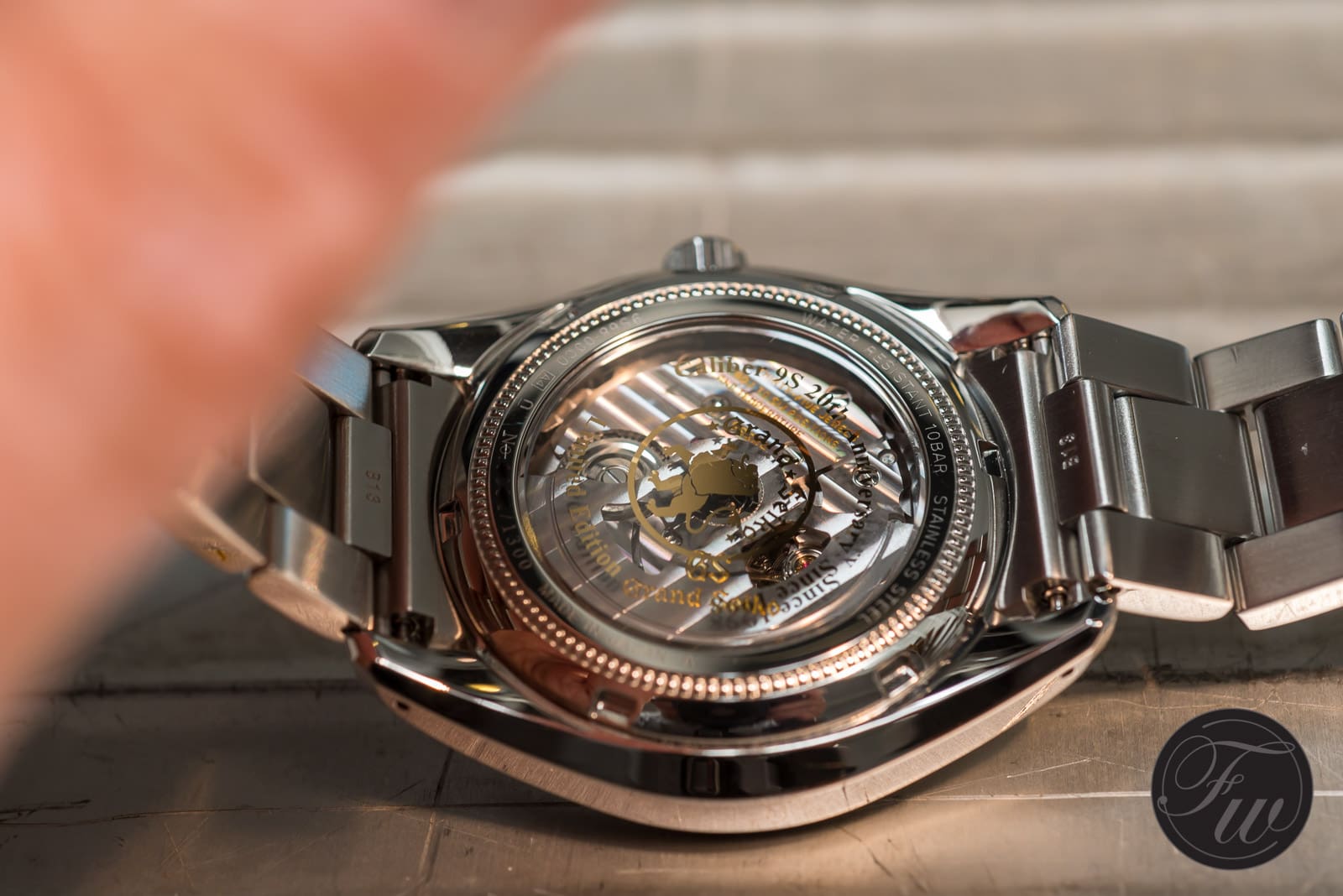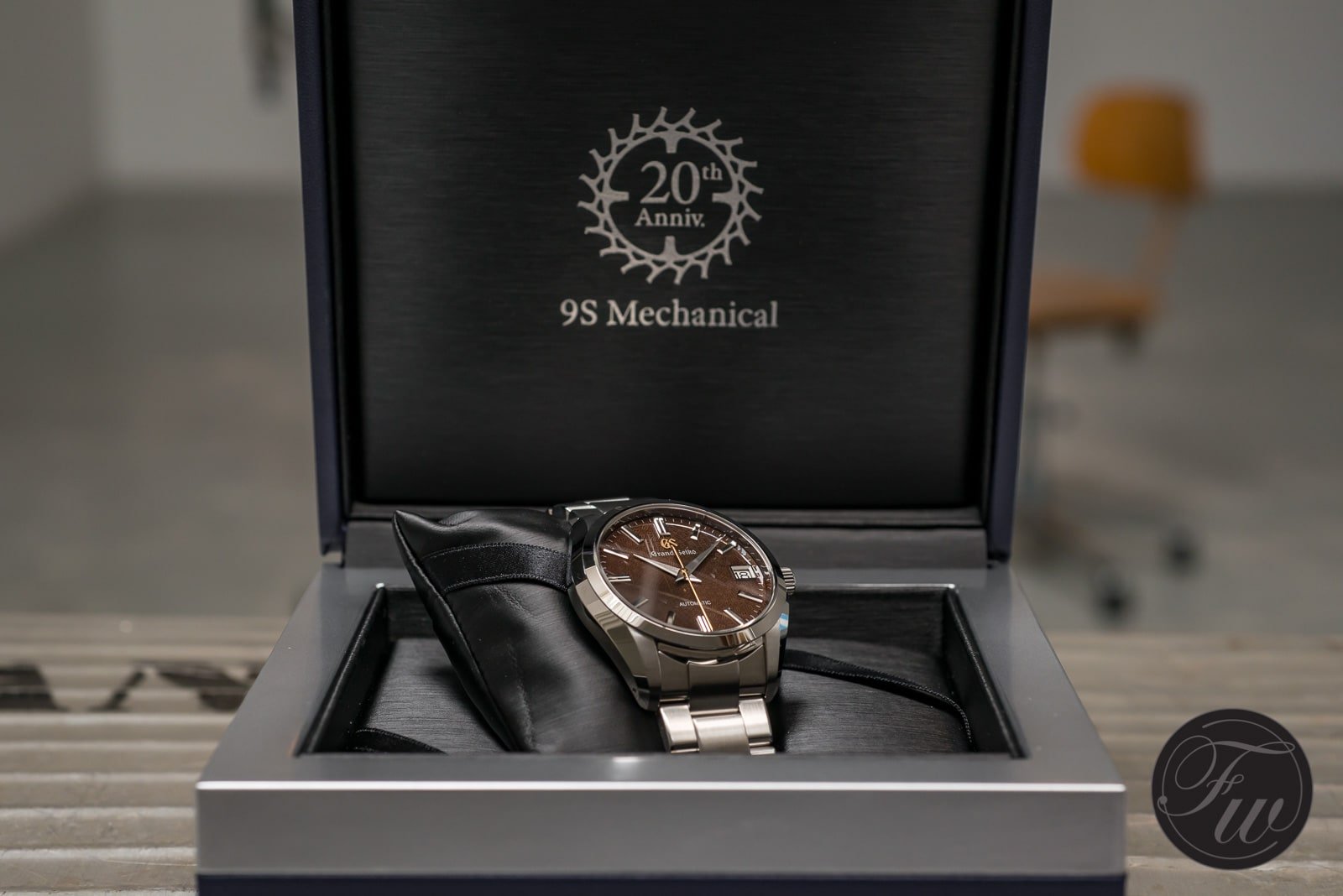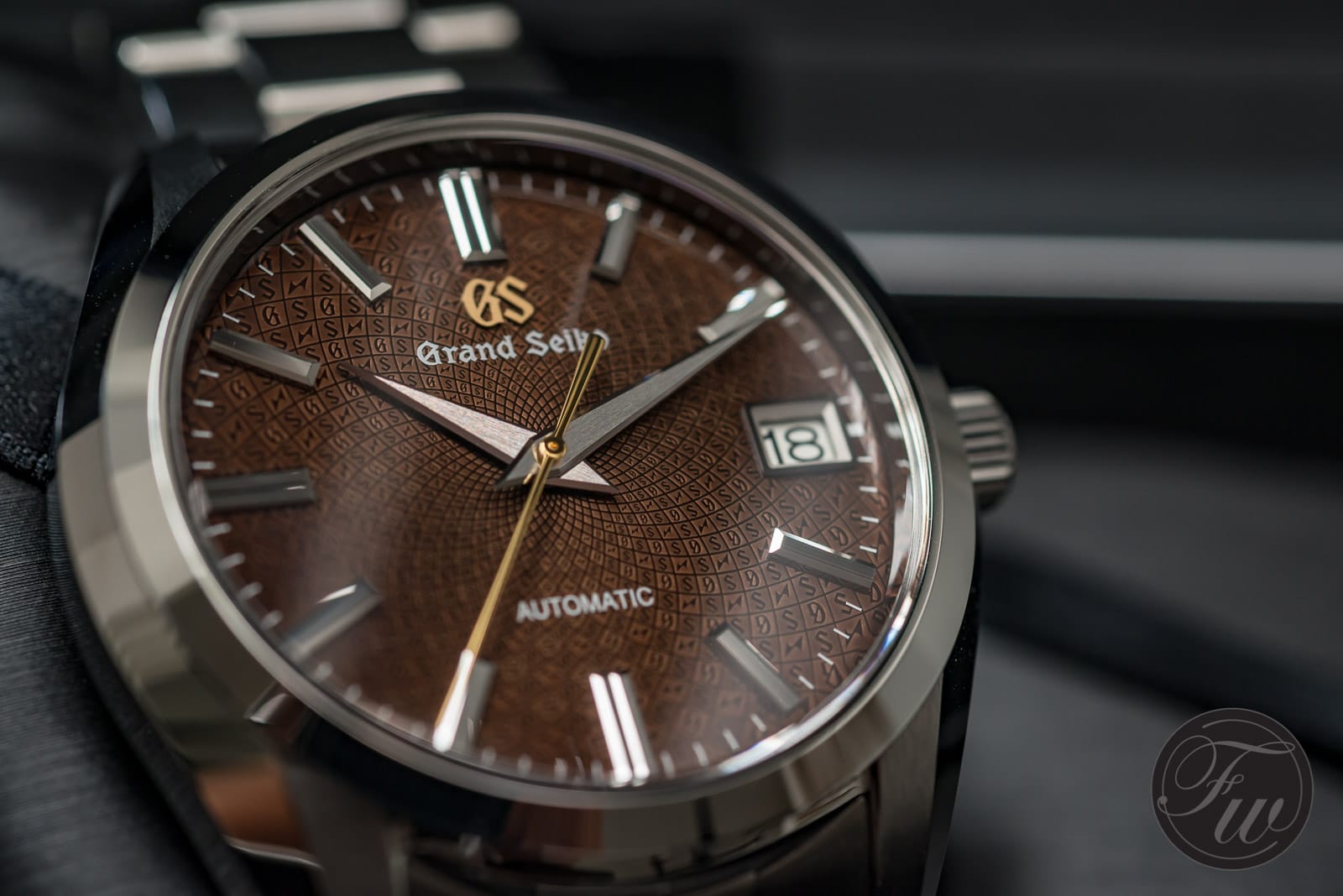Hands-On Grand Seiko SBGR311 Limited Edition Review + Overview of GS Service Costs
When Grand Seiko was re-introduced in 1988, their first models had quartz movements. Then, in 1998, Grand Seiko introduced the 9S calibre movement. The first two mechanical calibres for Grand Seiko that were introduced in 1998 were their calibre 9S51 and 9S55. The latter might sound familiar to you if you are into Seiko watches, as it was the base calibre for the 8L35(b) movements used in the Marinemaster series for example. These first two Grand Seiko movements were regulated to perform well within chronometer standards and had a power reserve of 50 hours. Since then, the 9S calibre movements have improved by (a.o.) using innovative materials (resulting in an accuracy of -5/+3 seconds a day on average) and offering a power reserve of no less than 72 hours.
Grand Seiko SBGR311 20th Anniversary of 9S Movements
To celebrate the 20th anniversary of the 9S movement, Grand Seiko decided to do us a favour and make it even harder to pick a watch from their impressive line-up. We get it already, they mastered the art of putting us watch enthusiasts in hazardous situations when saving up for one of their watches. As I’ve written in one of the last Grand Seiko coverages, it took me a year to decide which model to pick. So, this 20th-anniversary Grand Seiko SBGR311 watch was definitely on my shortlist, as it was shown to us during Baselworld by the fine people of Seiko The Netherlands. And later on again, when we sat down with Joe Kirk of Seiko USA.
Blue and Brown dial Grand Seiko 20th Anniversary watches
At first, I thought this brown dial version is equal to the limited edition blue dial SBGH267, but it isn’t. As the reference code indicates (SBGx, where x stands for the movement type) that we are talking about a high-beat movement here (‘H’) and not an ‘automatic’ movement (‘R’). So, the blue dial limited edition Grand Seiko SBGH267 is the 20th-anniversary model with a hi-beat movement inside. Also, the blue dial version is a tad bit smaller with a diameter of 39.5mm instead of the 42mm case of the brown dial Grand Seiko SBGR311. And on top of it all, the case shape is also different. What is in common for sure, is the gold GS logo and seconds hand. So now that we’ve got this cleared up, let’s have a look at the SBGR311.
Radial Spiral Pattern
Although many (including the manufacturer) talk about the performance of the Grand Seiko watch, the dials also deserve a lot of credit. The most famous Grand Seiko dials are probably the Snowflake and Mt. Iwate, this brown dial is definitely worth your admiration as well. As always, Grand Seiko has come up with some nice wording for describing it. In the case of their Grand Seiko SBGR311, their press release let us know that the brown colour is reminiscent of the local traditional blacksmiths working iron with flames.
In the pattern, you will discover the ‘G’ and ‘S’ that stand for Grand Seiko and then there is this ‘S’-shaped character that indicates the name of the Daini Seikosha manufacture (today known as Seiko Instruments Inc, located in Morioka). As you can see on the image above that Gerard took in the studio, the brown has this golden glow. It looks amazing, especially with the earlier mentioned gold GS logo and seconds hand.
The hour markers and hands are finished with the typical breathtaking eye for detail. Where other (Swiss) brands stop, as they find a certain level of quality good enough for the naked eye, Grand Seiko takes it a few steps further and ensures it also looks good under a microscope or macro lens. A great example was recently given in the Grand Seiko Owners Club Facebook group, where Ákos Balog shows three sets of hands of three different brands, including Grand Seiko (Rolex and Omega). Click on the images below for larger versions.
As you can see, there’s quite a difference in these cropped images (cut out from high-res images). This doesn’t mean the other hands are bad or not good, it just shows how far Grand Seiko is going when it comes to finishing. Perhaps it’s on the level of brands that are positioned higher than Rolex and Omega, in this example. It at least shows where the price of a Grand Seiko watch comes from if you are still wondering why these watches are higher priced than other Seiko watches. It is not only the hands and hour markers where you will find this type of craftsmanship, it applies to the rest of the watch as well. Again, with the naked eye these level of details are hardly visible.
Below, you see the sets of hands from Vacheron Constantin, Patek Philippe and Breguet. We received the images from RJ Kama who took these macro shots of these watches and posted them last Monday on his Instagram account. You will find that the Grand Seiko hands are similar or close to those of the Patek Philippe and Breguet.
SBGR311 Case And Bracelet
The stainless steel case of the Grand Seiko SBGR311 measures 42mm, which is together with this heavy hitter in platinum, the largest Grand Seiko I’ve handled. To be honest, it doesn’t feel and appeared much larger than the blue dial 39.5mm version or my own 40mm Grand Seiko, but the specifications tell otherwise. It shows that sometimes you should not be lead by specifications, but by how it actually wears.
I am pretty sure you are over-Zaratsu’d by now, but indeed that’s the type of (blade) polishing that gives this case so much character and quality. The design of the case is the typical Grand Seiko style, with beautiful edges, polished mirror surfaces and smooth curves. The design is not the ’44GS’ style that some Grand Seikos have (and which I admire so much), but it’s definitely very different from the typical round or square shaped watches that you see mostly out there. The GS signed crown is a bit recessed, but very easy to grasp and operate. The Grand Seiko SBGR311 is water resistant to 10bar (or 100 metres), but I am pretty sure not many of them will be used in the pool (or sea/ocean). If you do, make sure to have it checked every year and replace the gaskets when the watchmaker thinks it is necessary.
In the past, I’ve expressed how I feel about the bracelet design of Seiko and Grand Seiko watches. I am very critical when it comes to bracelet designs, which is of course very personal, but the Grand Seiko SBGR311 comes on the bracelet that I actually do like from them. I just wish all of their GS models came on this bracelet design. That said, there’s nothing wrong with the quality of the other bracelets, I just find the design a bit uninspiring (and very similar to the current Omega Speedmaster Professional bracelet). It never held me back from buying those, but it is the first thing I removed from the watch to replace it with a leather strap. Not in this case, I feel the sober design of the SBGR311 bracelet ensures all attention goes to the case and dial of the watch. The GS signed clasp uses two pushers to release it.
9S68 Automatic Movement
The celebration purpose of this Grand Seiko SBGR311 is its 9S movement, in this case, the calibre 9S68 movement. Grand Seiko refers to this as the large-size movement and it is based on the smaller 9S65, both have 72 hours of power reserve so it has nothing to do with room for a large(r) barrel. It has a beautiful finish, like the perlage on the main plate and the stripes on the rotor and bridges. The Grand Seiko initials and logo has been engraved in the rotor and filled with gold. This movement ticks at 28,800vph and has 35 jewels. The accuracy is well within COSC specifications (but not chronometer certified, as Grand Seiko believes in more strict parameters) with a daily average deviation between -5 and +3 seconds. On the official Grand Seiko website, you can find a thorough explanation of the 9S movement and all of its precise specifications.
On the back side of the Grand Seiko SBGR311, you will find the sapphire crystal that allows you to take a glance at the 9S68 movement. For the special occasion of 20 years of 9S movements, Grand Seiko decided to put a gold emblem of the GS lion on there, as well as the “Caliber 9S 20th Anniversary Since 1998 Limited Edition” inscribing and the unique number of the watch. Because yes, this is a limited edition of 1300 pieces and every watch has a unique number on there.
What I am not particularly fond of is the little ridge on the case back. First I thought this is for the case opener that a watchmaker uses, but looking at the six notches below the ridges, I don’t think it is. It might just be decoration, but I find it heavily distracting. On the other hand, this part is mainly on the wrist so it isn’t exactly a dealbreaker.
Price And Servicing
The price of the Grand Seiko SBGR311 is relatively friendly (I use the word relatively, as I am well aware of the fact that for most people it is still a huge amount), but also enters the domain of the watch market rulers from Biel and Geneva. Those brands also offer watches with this price tag (or around) with an in-house developed and manufactured movement. I feel that the €4900 is more than justified though, especially when you take the craftsmanship into consideration that results in a superb level of (hand)finish on the case, bracelet, dial and hands for example. Or the partly hand-finished movement.
Now, one of the most common questions we receive about Grand Seiko has to do with servicing. The density of Grand Seiko and Seiko boutiques is not that high yet, so you need to travel a bit when bringing in your GS for service.
If you are located in Europe, the good news is that there are two service centers for Grand Seiko. There’s one in The Netherlands and one in the United Kingdom. If you are not in these countries, you will need to visit a (Grand) Seiko boutique to ask about the details. That said, the shipping to Japan (and back) might take as long as from France to The Netherlands for example. We’ve been told that a service is done within three weeks on Grand Seiko, that might not include shipping, but that’s still faster than most other brands on the market.
We also asked about the service costs, not unimportant of course. There’s a difference between the movement types when it comes to servicing, logically. Grand Seiko also advises having a service done every other 3-4 years.
Service costs are:
- Mechanical calibre 9S Grand Seiko watches – €385
- Spring Drive 9R Grand Seiko watches – €430
- Spring Drive (9R86) Chronograph Grand Seiko watches – €940
- Quartz 9F Grand Seiko watches – €250
The main attraction of this limited edition Grand Seiko SBGR311 is mainly in the brown dial with the mosaic radial spiral pattern. If you are not into brown dials, there’s the limited edition blue dial watch but keep in mind that the diameter is smaller (and the watch costlier due to the high-beat movement). But, as you can read on a regular basis here on Fratello, the collection of Grand Seiko is ever-growing and I can’t imagine there isn’t a combination that will excite you.
For more information and availability, contact your nearest Grand Seiko dealer. Or visit the official Grand Seiko website.

